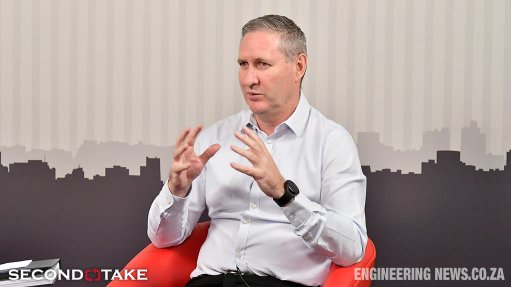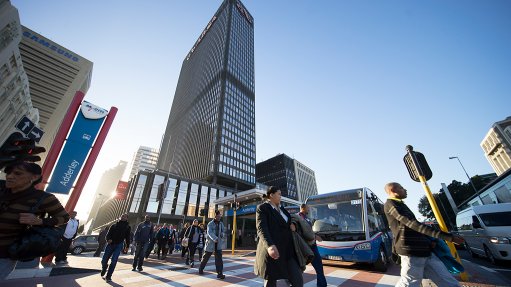Worrying inaccuracies in GM article
Editor –
We read with interest but also with great concern the article entitled 'The promises of GM crops remain unfulfilled'.
Monsanto is of the view that this article was written out of lack of proper knowledge. This is understandable, since the relationship between agriculture and engineering remains a mystery to many people. Because of this lack of understanding, genetically modified organism (GM) food technology is, unfortunately, being blamed for infrastructure or institutional failures.
To begin with, the writer seems to have a flawed understanding of the meaning of 'food security'. The incorrect assumption carried in the article implies that increased food production leads to better food security and better nutrition. However, increased food production does not necessarily mean increased food security, because there are multiple factors that lead to the achievement of that goal.
Perhaps the most accurate definition of food security is that which was given during the World Food Summit that was held in Rome in 1996. According to that summit, “food security exists when all people, at all times, have physical and economic access to sufficient, safe, nutritious food to meet their dietary needs and food preferences for an active life”.
The United Nations Food and Agriculture Organisation, as well as the Centre for Poverty, Employment and Growth of the Human Sciences Research Council (HSRC) also acknowledge that food security has three dimensions: availability, access and use. These imply that there is food security when all people, at all times, have physical, social and economic access to sufficient, safe and nutritious food that meets their needs and preferences for an active and healthy life.
What the article fails to adequately acknowledge is the fact that GMO technology has enabled South Africa to increase crop yield over the years, despite the shrinking size of agricultural land. Prior to the introduction of GMOs, the country produced, on average, 1.5 t/ha. Today, the average yield per hectare is 4.5 t, and in some areas 14 t/ha to 15 t/ha have been recorded.
Better agricultural practices, as well as the use of glyphosates, have been instrumental in achieving this. Internationally, after more than three decades of widespread glyphosate use, resistance to glyphosate has been observed in biotypes of only a few weed species globally. All these resistant biotypes can be effectively and economically managed through alternative control practices, such as tank mixes with residual or selective herbicides, tillage or other means. In South Africa, resistance to glyphosate has been confirmed in populations of only three species: Conyza bonariensis, Lolium rigidum and Plantago lanceolata. It is to be noted that, of the three glyphosate-resistant weeds in South Africa, only Conyza is commonly found in maize fields and then as a winter weed. Also to be noted is the fact that all three cases occurred in vineyards and orchard trees in the Western Cape, an area that has never been planted to glyphosate-resistant crops, such as cotton, maize and soya.
The other serious allegation made in the article is that glyphosates end up in our food chain, with adverse health and environmental effects. Again, no scientific evidence has ever been presented to confirm this. On the other hand, work done by Monsanto over many years, which has also been scientifically validated by our peers, has proved that both GMOs and glyphosates are safe and pose no danger to either human or animal health, as well as the environment, as claimed.
In conclusion, Monsanto can boldly confirm that none of the allegations made against its products have ever been backed by any meaningful and solid scientific evidence. On the contrary, all our products comply with the country’s regulations and international standards.
It is unfortunate that consumers are fed incorrect information on GMOs all the time, mostly by people who are not even experts in this field.
Kobus Steenkamp,
Monsanto South Africa Country Manager
Comments
Announcements
What's On
Subscribe to improve your user experience...
Option 1 (equivalent of R125 a month):
Receive a weekly copy of Creamer Media's Engineering News & Mining Weekly magazine
(print copy for those in South Africa and e-magazine for those outside of South Africa)
Receive daily email newsletters
Access to full search results
Access archive of magazine back copies
Access to Projects in Progress
Access to ONE Research Report of your choice in PDF format
Option 2 (equivalent of R375 a month):
All benefits from Option 1
PLUS
Access to Creamer Media's Research Channel Africa for ALL Research Reports, in PDF format, on various industrial and mining sectors
including Electricity; Water; Energy Transition; Hydrogen; Roads, Rail and Ports; Coal; Gold; Platinum; Battery Metals; etc.
Already a subscriber?
Forgotten your password?
Receive weekly copy of Creamer Media's Engineering News & Mining Weekly magazine (print copy for those in South Africa and e-magazine for those outside of South Africa)
➕
Recieve daily email newsletters
➕
Access to full search results
➕
Access archive of magazine back copies
➕
Access to Projects in Progress
➕
Access to ONE Research Report of your choice in PDF format
RESEARCH CHANNEL AFRICA
R4500 (equivalent of R375 a month)
SUBSCRIBEAll benefits from Option 1
➕
Access to Creamer Media's Research Channel Africa for ALL Research Reports on various industrial and mining sectors, in PDF format, including on:
Electricity
➕
Water
➕
Energy Transition
➕
Hydrogen
➕
Roads, Rail and Ports
➕
Coal
➕
Gold
➕
Platinum
➕
Battery Metals
➕
etc.
Receive all benefits from Option 1 or Option 2 delivered to numerous people at your company
➕
Multiple User names and Passwords for simultaneous log-ins
➕
Intranet integration access to all in your organisation

















